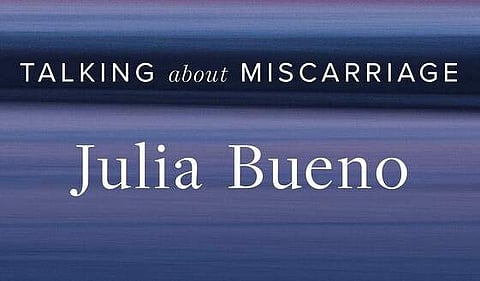
- LIFESTYLE
- FASHION
- FOOD
- ENTERTAINMENT
- EVENTS
- CULTURE
- VIDEOS
- WEB STORIES
- GALLERIES
- GADGETS
- CAR & BIKE
- SOCIETY
- TRAVEL
- NORTH EAST
- INDULGE CONNECT

The Brink of Being: Talking about Miscarriage (Penguin Books), by Julia Bueno
Miscarriage was historically an overlooked experience, but a new book hopes to bring it to the forefront of our cultural discussions.
Written by British psychotherapist Julia Bueno, whose specialty is pregnancy loss, comes The Brink of Being: Talking about Miscarriage.
Discussions about miscarriage have evolved significantly in recent years, but Bueno hopes to push the dialogue further.
Until 1980, researchers showed little interest in learning more about the emotional and psychological impact a miscarriage can have on a woman.
Bueno brings her personal experience to the book. She lost her twin girls when she was 22 weeks pregnant.
The miscarriage was so devastating that Bueno changed careers to focus on helping women cope with pregnancy loss.
"There is an entrenched belief that a bond with a child can only really begin after a familiar-looking baby is born alive, and we still have a way to go before it fully dissipates," Bueno writes.
For centuries, most women had no way of knowing definitively if they miscarried. Modern technology, specifically the at-home pregnancy test, changed this.
Now women know if they're pregnant early on, which can lead to expectations and bonding to their unborn.
"The notion of a relationship existing with our unborn — however, developed in the womb he or she may be — took pitifully long," she writes.
An estimated one in four pregnancies ends spontaneously. Miscarriage is an experience that often leaves a woman, and sometimes expectant family members, reeling with grief.
Despite the commonality of miscarriage, few resources are available to help women cope.
Each chapter discusses specific aspects of pregnancy loss, including early miscarriage, IVF, funerals and memorials.
Those who have been touched by miscarriage will surely find this book a great resource outlining the emotional landscape after pregnancy loss or as a guide to better understand what a woman might be enduring.